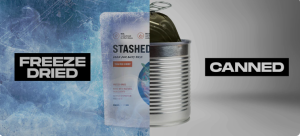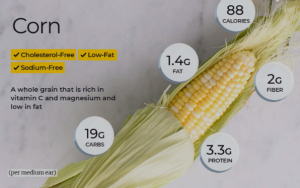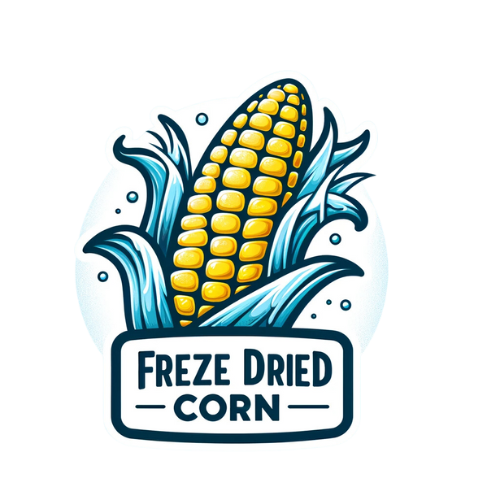Corn Conundrum: Canned vs. Freeze-Dried – Which is Healthier?
If you’re thinking about stocking up your pantry, it’s no surprise that corn has a spot on the list. Corn should be in your pantry due to its numerous health benefits, as well as its versatility in most recipes. Whether using it in soups or as a big pan of cornbread, corn is an excellent ingredient to keep in your cupboards for days when you’re cooking. The good news is that canned corn is commonly used in home kitchens so it should be easy to find in your local grocery store. However, if you want to experiment with other ways to incorporate corn in your meals, freeze-dried corn can add dimension thanks to its texture and flavor. In this article, we compare canned and freeze-dried corn to determine which option is the real winner in terms of nutrition.
Nutritional Profile of Canned Corn
Processing and Preservation
Most canned corn is picked when it is at its sweetest but before it is overly ripe. Canned corn is usually processed (blanched) within a few hours of being picked so it is possible to retain a lot of the freshness. Once canned, the corn is packed in water and sometimes salt, and some water-soluble vitamins such as vitamin C and the B vitamins are likely to be lost.
Sodium Content
A big complaint that we always hear about canned corn is the sodium. It’s used as a preservative and chemical reaction-stabiliser. In general, sodium is bad when there’s too much in a diet. The two easiest ways to make canned corn salt-conscious are to either buy varieties with no added salt or merely rinse the corn after draining for a no-added-salt effect.
Nutritional Profile of Freeze-Dried Corn
Freeze-Drying Process
This type of dried corn is derived by freezing the corn before extending it – in a vacuum – to the vapour (sublimation) stage. As a result, much of the corn’s vitamins, minerals, antioxidants remain.
Preserving Nutrients and Flavor
The product features a rich corn flavour and colour that is uncommon in other dried food as it does not require processing or additive treatments like monosodium glutamate, nor does it accumulate preservatives over time like freezing. It also does not require refrigeration or canning, which makes it a leading food product in components such as volume, caloric content and potassium (more than 2 per cent in dry weight). The lack of water makes it easier to extract nutrients and prevents bacteria and enzymes from damaging them. At the same time, the freeze-drying process keeps nuts and vegetables as bright and vivid as when they were freshly picked. That’s important because colour science shows there is a link between food colour and flavour and nutrition. It’s not surprising to find that white bread is made with plain or cream-coloured flour, nor is it unusual to see beer, especially golden lagers, enhancing food and appearance with stronger aromas to boost our enjoyment. Interestingly, Wangpan surveyed 486 people living in six remote prefecture- level cities in Sichuan and discovered that most of them did not know freeze-dried corn was a ranch product when they first tried it, even though the packaging openly declared on the back it came from Sichuan province. Wangpan suspected they simply mistook it for normal dried corn, corroborating the notion that the taste of the product was superior to the nuclear earth colour of food. This is not surprising; we only have to think about what happens to petals in a flower arrangement after immersion in water to understand how unpleasant it can be when we try to consume the dish of raw fish.
Comparing Health Benefits
Vitamin and Mineral Retention
In general, freeze-dried corn tends to retain more vitamins and minerals than canned corn, since high-heat processing isn’t used. This can diminish certain heat-sensitive nutrients.
•Corn grains are rich in vitamins: A, C, PP, E, D, K, group B.
Dietary Fiber
Canned and frozen corn can be equally healthy, as they provide equal fibre. Fibre is important for an overall well being, especially the health of the digestive system as well as maintaining blood sugar levels in an normal range. So they can be considered good, if integrated in the right way in our diet.
Making the Healthier Choice
Consider Your Dietary Needs
Ultimately, whether you pick canned of freeze-dried corn is dependent on your dietary needs and personal preferences. If convenience and lower cost are your concern, canned corn is a viable choice – especially if you go for low-sodium versions and then rinse it as well. Yet if your goal is the greatest nutritional retention and lack of additives, freeze-dried is the way to go.
Usage in Recipes
It might also depend on how you’ll use your corn: freeze-dried corn is great in those dishes where you want it to add the texture and flavour of fresh corn, like salads and salsas. Canned corn is much better with soups and stews, where it takes on the flavours of the dish.
Conclusion
While it largely depends on the manufacturing process, freeze-dried corn is usually healthier than the canned kind, as the former has less nutrient deterioration and less artificial additives, but it can do with moderation in the kitchen compared with canned corn that we need keep in mind health matters.

There are no reviews yet.